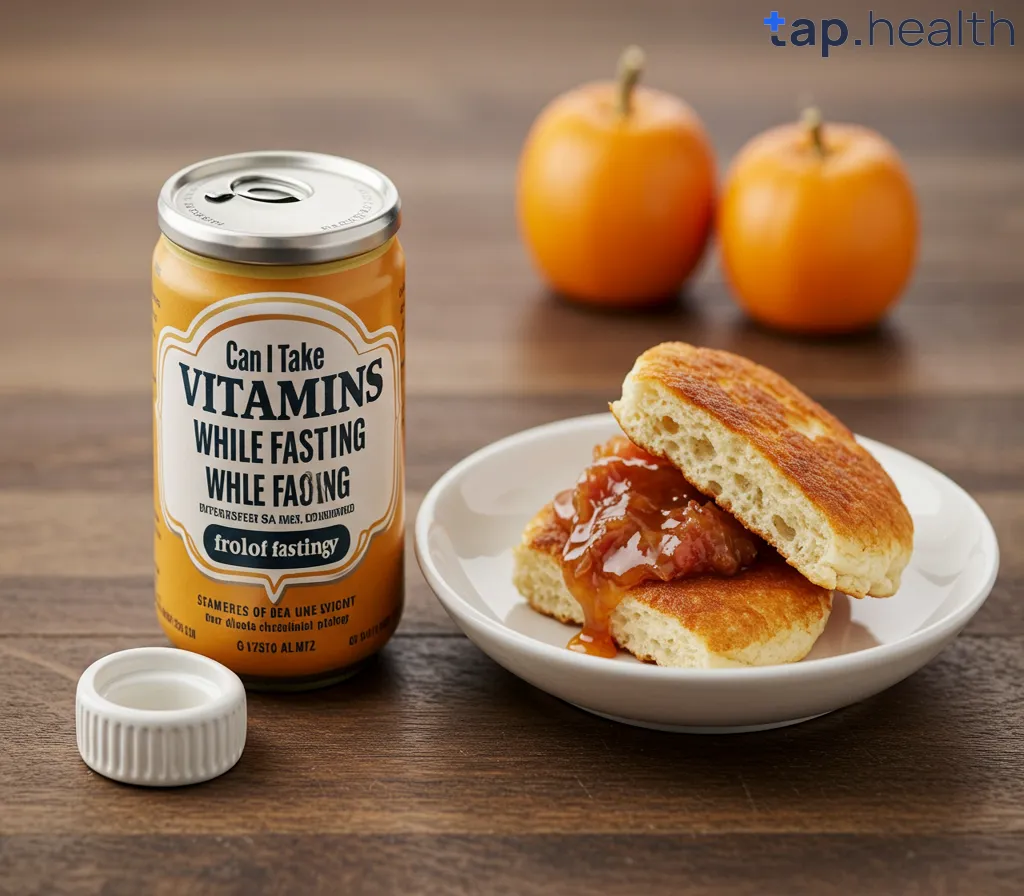Fasting has gained popularity for its potential health benefits, including weight loss, improved metabolism, and better blood sugar control. However, if you’re fasting for religious, health, or weight-loss reasons, you might be wondering if it’s okay to take vitamins during your fast. After all, vitamins are essential for overall health, and missing out on them could potentially lead to deficiencies.
In this article, we’ll explore whether it’s safe and beneficial to take vitamins while fasting, when it’s best to take them, and what you need to know about combining supplements with a fasting regimen.
What Is Fasting?
Before diving into whether it’s okay to take vitamins while fasting, let’s briefly define fasting and its types.
Fasting is the practice of abstaining from food or drink for a set period. Fasting can be done for various reasons:
- Religious purposes (such as during Ramadan or Lent)
- Health and wellness (such as intermittent fasting or extended fasting)
- Detoxification (to help cleanse the body from toxins)
Fasting typically involves abstaining from food but may allow water, tea, or black coffee. There are different fasting methods, such as:
- Intermittent fasting: Cycling between periods of eating and fasting (e.g., fasting for 16 hours and eating during an 8-hour window).
- Water fasting: Only consuming water and abstaining from food for a set time.
- Alternate-day fasting: Fasting on alternate days and eating normally on the other days.
Now, let’s address the main question: Can you take vitamins while fasting?
Can You Take Vitamins While Fasting?
In most cases, you can take vitamins while fasting, but there are a few things to consider depending on the type of fasting you’re doing and the type of vitamins you’re taking.
1. Water-Soluble Vitamins vs. Fat-Soluble Vitamins
When it comes to taking vitamins during fasting, it’s important to distinguish between water-soluble and fat-soluble vitamins.
1.1 Water-Soluble Vitamins
Water-soluble vitamins include Vitamin C and the B vitamins (like B12, B6, and folic acid). These vitamins dissolve in water and are absorbed by the body quickly. Generally, you can take water-soluble vitamins while fasting without major issues.
- When to take: It’s best to take water-soluble vitamins during your fasting window (either on an empty stomach or with a small amount of food) since they don’t require fat for absorption. However, taking them on an empty stomach can sometimes cause nausea or discomfort for some people, so it’s always good to listen to your body.
1.2 Fat-Soluble Vitamins
Fat-soluble vitamins include Vitamins A, D, E, and K. These vitamins are absorbed and stored in fat, meaning they need to be taken with a meal containing fat for optimal absorption.
- When to take: If you’re fasting and you’re planning to take fat-soluble vitamins, it’s better to wait until you break your fast and consume them with a meal that contains healthy fats (such as avocado, olive oil, or nuts). Taking fat-soluble vitamins during fasting may not be as effective since they need fat for proper absorption.
2. Can Taking Vitamins During Fasting Break the Fast?
Many people wonder if taking vitamins during a fast will “break” the fast or interfere with the health benefits of fasting. Here’s what you need to know:
- Caloric Content: If the vitamins are in pill form, they typically don’t contain any calories, so they will not break the fast. Vitamin pills and capsules generally do not affect your insulin levels or blood sugar, meaning they shouldn’t interfere with the benefits of fasting.
- Liquid Vitamins or Gummy Vitamins: Some liquid vitamins or gummy vitamins contain sugars or sweeteners that can contribute calories and potentially disrupt a fast, especially if they’re taken in large quantities. Always check the label to ensure there’s no added sugar or calories.
- Electrolyte Supplements: If you’re fasting and taking electrolyte supplements (often including magnesium, potassium, or sodium), they typically don’t break the fast unless they contain added sugars. These are often used to maintain electrolyte balance during longer fasting periods or to help with hydration.
3. When to Take Vitamins During Fasting
Timing is key when taking vitamins while fasting. Here’s a breakdown of the best practices for different types of vitamins:
3.1 Best Time to Take Water-Soluble Vitamins
Water-soluble vitamins like Vitamin C and B vitamins can be taken during your fasting period. It’s best to take them either:
- On an empty stomach, first thing in the morning when you wake up.
- Before a meal, ideally during your fasting window.
Taking them with water is sufficient, and you don’t need to pair them with food, as they are absorbed quickly by the body.
3.2 Best Time to Take Fat-Soluble Vitamins
Since fat-soluble vitamins require fat for absorption, it’s best to take them when you break your fast and eat a meal. If you’re following an intermittent fasting regimen, consider taking them with your first meal, which should ideally contain healthy fats.
- Examples of meals with fat: A salad with avocado or olive oil, a piece of salmon, or scrambled eggs with olive oil.
Taking fat-soluble vitamins with a meal containing fat ensures they are properly absorbed by your body.
What Happens if You Take Vitamins on an Empty Stomach During Fasting?
Taking vitamins on an empty stomach during fasting can have both positive and negative effects. Here’s what you should consider:
1. Water-Soluble Vitamins
For most people, taking water-soluble vitamins on an empty stomach is generally safe and won’t cause any problems. However, for some individuals, it can cause minor stomach irritation or nausea.
If you experience stomach upset, you may want to take them with a small meal, or you can try taking them later in the day.
2. Fat-Soluble Vitamins
Taking fat-soluble vitamins on an empty stomach may not be effective because they need fat to be absorbed properly. Therefore, it’s best to wait until you break your fast and consume a meal with healthy fats.
3. Gummy Vitamins
Some gummy vitamins contain sugars or artificial sweeteners that could add calories, which may impact the fasting process. These should generally be avoided during fasting unless consumed with your meal.
Potential Benefits of Taking Vitamins While Fasting
Taking vitamins during fasting can have several health benefits, particularly when done properly. Here’s how vitamins can enhance the fasting process:
1. Supporting Immune Function
Both Vitamin C and Vitamin D are vital for a healthy immune system. If you’re fasting to boost immune health, taking these vitamins can support your body’s defense mechanisms during the fast.
2. Preventing Nutrient Deficiencies
Fasting for long periods or following strict fasting protocols may limit nutrient intake. Taking multivitamins or individual vitamins like Vitamin C and Vitamin D ensures you still receive essential nutrients during fasting, which can help prevent deficiencies.
3. Enhanced Energy Levels
B Vitamins, including B12, play an essential role in energy metabolism, helping you maintain energy during fasting. Taking Vitamin D can also help with energy levels by improving overall mood and fighting fatigue.
4. Supporting Muscle Health
Vitamin D helps with muscle function and strength, which is especially important if you’re fasting for extended periods or doing physical activity while fasting.
Risks of Taking Vitamins During Fasting
While it is generally safe to take vitamins during fasting, there are a few risks to be aware of, especially if you are not mindful of timing and dosage.
1. Overuse of Supplements
Taking too many vitamins during fasting can lead to toxicity, especially if you take fat-soluble vitamins (A, D, E, K) in excess. It’s important to stick to the recommended daily intake for each vitamin.
2. Stomach Upset
Some people experience stomach irritation or nausea when taking vitamins, especially on an empty stomach. To reduce the risk of discomfort, consider taking water-soluble vitamins with a small meal.
3. Increased Risk of Nutrient Imbalance
Relying on supplements while fasting without focusing on a balanced diet can lead to nutrient imbalances. It’s important to ensure that your meals provide adequate nutrition when you break your fast, not just rely on supplements.
Can I Take Multivitamins While Fasting?
Taking multivitamins during fasting is similar to taking individual vitamins. Most multivitamins contain both water-soluble and fat-soluble vitamins, so it’s best to take them when you break your fast, alongside a meal that contains fat. Some people take them during their fasting window, but this could affect absorption, especially for fat-soluble vitamins.
Frequently Asked Questions (FAQs) on Can I Take Vitamins While Fasting?
1. Can I take vitamins during intermittent fasting?
Yes, you can take vitamins during intermittent fasting. Water-soluble vitamins can be taken during your fasting window, but fat-soluble vitamins should be taken with food when you break your fast.
2. Does taking vitamins break the fast?
Taking non-caloric vitamins generally doesn’t break the fast. However, some liquid vitamins or gummies may contain sugars or calories that could interfere with the fasting process.
3. Is it better to take vitamins on an empty stomach or with food?
It depends on the type of vitamin. Water-soluble vitamins can be taken on an empty stomach, but fat-soluble vitamins should be taken with food containing fat for optimal absorption.
4. Can I take Vitamin D during fasting?
Yes, you can take Vitamin D while fasting, but it should ideally be taken with a meal containing fat to ensure proper absorption.
5. What vitamins should I take while fasting?
If you’re fasting, you can take Vitamin C and B vitamins during the fasting period, and Vitamin D when you break your fast with a meal that contains fat.
Conclusion
In summary, taking vitamins while fasting is generally safe, but the timing and type of vitamins you take are important to ensure optimal absorption and effectiveness. Water-soluble vitamins can be taken on an empty stomach, while fat-soluble vitamins should be taken with a meal containing fat when you break your fast. Always stick to the recommended dosages and be mindful of potential side effects like stomach upset or nutrient imbalance.
As always, if you’re unsure about what vitamins to take during fasting, consult with a healthcare provider to create a supplement plan that suits your specific health needs.



